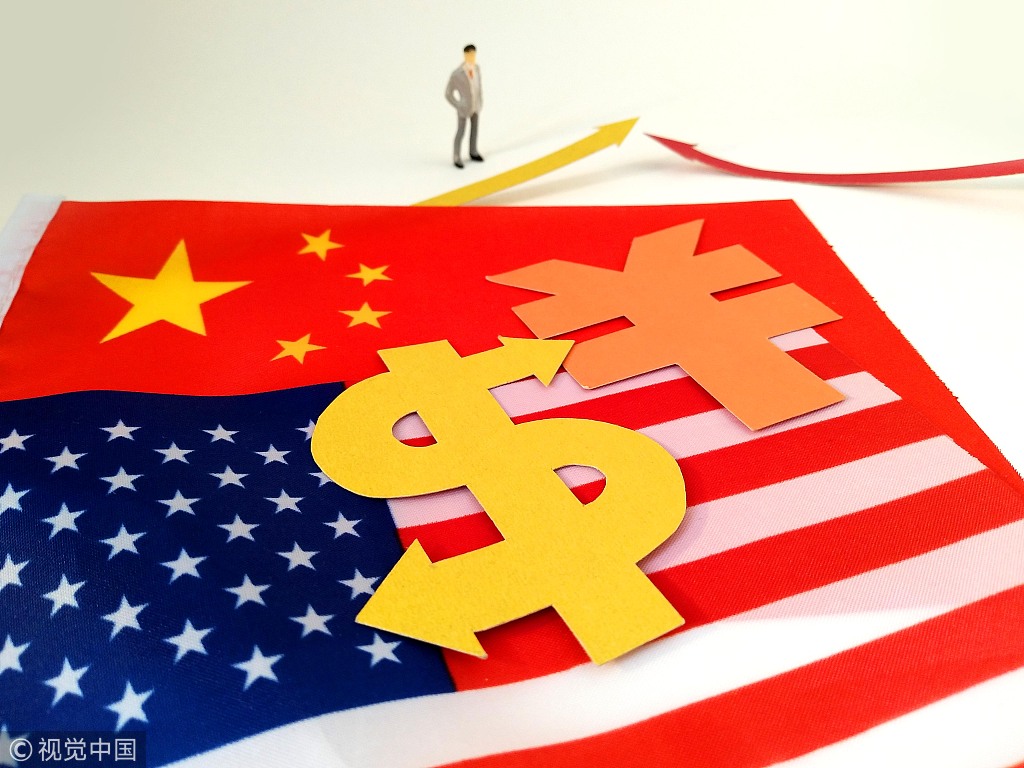IMF warns of trade dispute disruptions


Escalating disputes between China and the United States could significantly weaken sentiment in business and financial markets, disrupt global supply chains and create an economic drag this year, the International Monetary Fund warned on Friday.
The IMF research, citing official data, found that the revenue collected by the US government through hefty tariffs on Chinese imports, has been paid almost entirely by US importers.
"Some of these tariffs have been passed on to US consumers, such as those on washing machines, while others have been absorbed by importing firms through lower profit margins," the research said.
Any further increase in tariffs will likely be passed through to consumers, it said.
China and the US, the world's two largest economies, have been embroiled in a tit-for-tat trade confrontation over the past few months. Washington threatened to further escalate a tariff war and increased tensions by tightening restrictions on Chinese companies.
Earlier this month, the US raised tariffs on $200 billion of Chinese imports from 10 percent to 25 percent, and China took countermeasures. Then the US administration listed about $300 billion more of Chinese goods for possible tariff hikes.
The IMF report warned that the additional impact of the recent and future tariffs will cut about 0.3 percent of global GDP in the short term, with half stemming from negative effects on business and market confidence.
Failure to resolve the trade differences and further escalation in other areas, such as the auto industry, which would cover several countries, "could further dent business and financial market sentiment, negatively impact emerging market bond spreads and currencies, and slow investment and trade", the research said.
Experts urged the US government to stop its protectionism and proposed options for a resolution between the two countries.
Chen Wenling, chief economist of the China Center for International Economic Exchanges, said the US needs to correct moves that have already added pressure to global economic prospects. Otherwise, it will "pay the price" for its protectionist behavior, she said.
Chen said the US is "disrupting the world order, weakening the global economy and destroying the trade rules".
Stephen Roach, a faculty member at Yale University and former chairman of Morgan Stanley Asia, said the US government "blamed others for economic problems that are very much of its own making".
There are plenty of realistic options for resolution between the two countries, Roach said in a recent article contributed to Beijing-based think tank China Watch. For instance, he suggested, the US and China should take the lead in forging a global cyber accord.
"While additional tariffs from both US and China will weigh on China's growth outlook, we expect policy measures to offset some of the negative impacts," said Tommy Wu, a senior economist at Oxford Economics, a British think tank.
The spike in trade tensions has already rattled financial markets. The yuan has weakened by 2 percent to its lowest level since January.
"We expect stock markets and the yuan to remain under pressure in the near term, though they could be supported by an expected stabilization in the domestic economy later this year," Wu said.
Sheng Songcheng, the former director of the Survey and Statistics Department in the People's Bank of China, said the truth is that imposing more tariffs on Chinese goods has not yet reduced US trade deficits.
The long-lasting US trade deficits in goods was formed from the US dollar's international status, its domestic low deposit rate and the US position in the global value chain, and those factors cannot be changed by protectionist measures, Sheng said.



































